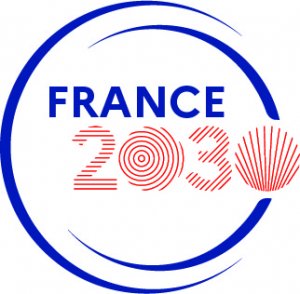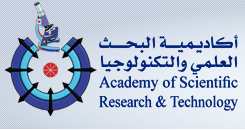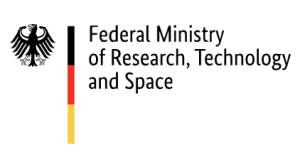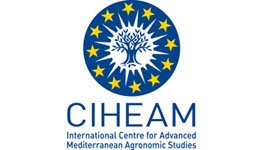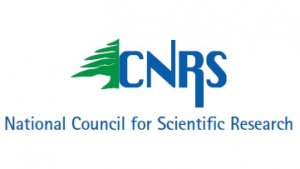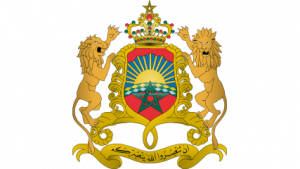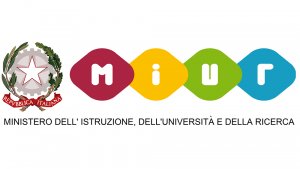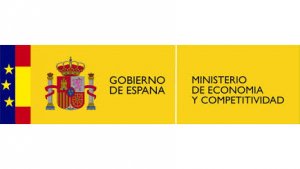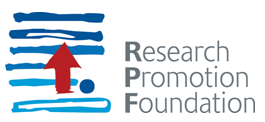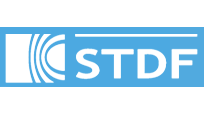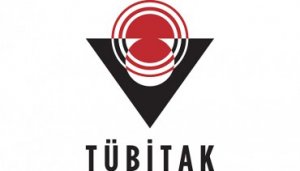ERANETMED Joint Call for Research Proposals on Environmental Challenges and Solutions for Vulnerable Communities
This call invites project consortia including research teams from the countries represented within the ECFP to submit proposals for funding. The members of the ECFP are responsible for defining the principles of the call as well as for the steering, decision making and monitoring of its implementation. They will provide funds and administrative services for supporting national beneficiaries in collaborative projects to be jointly selected.
The ECFP is assisted by a Call Secretariat (CS) in charge of the Common Call Management (CCM) hosted at the German Aerospace Center (DLR).
This joint call is implemented through a coordinated funding action based on a virtual common pot scheme where each funding party funds its own national research organization within a multilateral project selected through a peer review process.
The total financial contribution to this joint call is 7.160.000 Euro (please note that this amount might be increased following Tunisia’s confirmation).
Scientific scope of the call
The Mediterranean, particularly the southern region, is largely characterised by water scarcity, limited water availability, severe climatic conditions, demographic and migratory challenges. Arid and semi-arid conditions are the typical geo-physical feature of most rural and remote areas, these conditions being a constraint for socio-economic growth, food security, stability and ecosystems sustainability. The sustainable management of water is pivotal to tackle above challenges and indispensable for the sustainability of the Mediterranean region, considering that the national economy of most of the non-EU Mediterranean countries is based on irrigated agriculture, which accounts for about 70% of water consumption. The remaining 30 % is allocated to drinking and industrial use. A rational and sustainable use of water in agriculture could allow a significant availability for other uses and ecosystems.
The present call aims at strengthening international cooperation on research and innovation in the Mediterranean and enhance Euro-Mediterranean research networks tackling the challenge of water in rural and remote areas in coastal zones and inlands. In addressing the above challenges, researchers will have to provide a methodological approach able to deliver a tangible contribution to socio-economic growth and sustainable development in the region considering environmental and ecosystem dimensions as well as energy use.
In particular, research projects funded by this call will have to develop innovative water management accounting for the need of sustainable food production and agriculture while contributing in a tangible way to environmental sustainability, and ecosystem services. Water management in successful projects will have to enhance real and measurable innovation, socio-economic growth, new opportunities and jobs in areas like water saving, energy efficiency and cost in water use, waste water re-use and recycling. Projects should clearly contribute to the sustainability and minimisation of the use of natural resources, stabilisation of rural and remote areas and mitigation of climate change impact. It is drawn the importance of cross cutting issues like gender and youth, governance, multi-level stakeholder participation, climate and ICT in addressing above challenges.
Expected impacts
Research proposals must show an adequate methodology and clear deliverables ensuring the following impacts:
- Improved availability, acceptance and use by local communities of innovative models of water management in difficult climate conditions and arid areas.
- Reduced pressure on environment, improved ecosystem services, water yields and sustainable food production.
- Enhanced innovation in water-energy nexus, particularly supporting sustainable use of water with less and affordable energy cost.
- Increased water management capacity of local communities in rural, remote and arid areas.
- Developed effective models of knowledge transfer in sustainable water management.
- Increased socio-economic growth and stability of targeted areas.
Actions addressed
Three types of collaborative activities – “actions” – can be funded by this call: Collaborative research, Innovation, Mobility.
All projects will have to include collaborative research. Collaborative research is compulsory and undertaken by a partnership of institutions (“consortium”) designed to produce new knowledge through scientific research, whereby each team within the partnership actively pursues specific task objectives with a view to pooling the results to contribute to the achievement of a set of common, well-defined project objectives. Collaborative research should have high impact and contribute to demand and policy driven research.
When explicitly mentioned in the National Rules of Funding Agencies, actions related to Innovation and Mobility are strongly encouraged and their inclusion in the project work plan will be carefully considered and positively evaluated.
More specifically, as for Innovation, projects will deliver tangible outputs and/or align projects towards enhancing innovation or social innovation, depending on the research question addressed. Innovation actions should involve the private sector in the project consortium, and particularly relevant SMEs. However, this will not result into a penalization of applicants whose national funding agencies do not allow private sector funding in their national rules.
As for Mobility, projects are encouraged to integrate in their work plan schemes for the mobility of young researchers / post graduates, in accordance with the modalities set out in national rules of funding agencies. To this regard, CIHEAM Bari – acting as Intergovernmental Organization – will fund the inclusion of mobility schemes involving nationals from the following countries: Algeria, Egypt, Lebanon, Morocco, Tunisia, Turkey, Jordan.
Cross-cutting issues
Applicants are encouraged to take into account for their research important cross-cutting issues, particularly: governance, ICT and gender. The inclusion of cross-cutting issues will be carefully considered and positively evaluated.
Participation rules
Applicants
Applicants must be eligible for funding according to the regulations of their respective national Funding Agencies. They can represent research and higher education entities, companies, and other legal entities such as NGOs, once again subject to institutional restrictions set by individual funding agencies. Details on eligible institutions for each of the funding agency can be found in the Annex 2 of the Guide for Applicants, and should be consulted prior to proposal preparation.
Applicants from ERANETMED countries having no contribution in this call can participate in project consortia with their own institution, as additional partners to the minimum number of participants, by funding their own involvement.
Research organizations or industry which do not belong to any country participating in the ERANETMED project may participate on their own costs, which means that they can contribute to a specific project either financially with “own contribution” or “in kind”. Their commitment must be presented at the time of proposal submission with a letter of intent (LoI).
Consortia
The project consortium must comprise project partners from at least 3 different countries whose Funding Agencies contribute to the 3nd joint call, of which at least one from an EU Member State/Associated Country (Cyprus, France, Germany, Italy, Portugal, Spain, Tunisia, Turkey) and one from a Mediterranean Partner Country (Algeria, Egypt, Jordan, Lebanon, Morocco).
The project consortium designates a Project Coordinator which must belong to an entity legally established in one of the countries funding this call. The project Co-ordinator will have the following roles:
- Be the single point of contact and entry point for information provided by the Call Secretariat (CS) before, during and after submission.
- To submit the Application Form on behalf of the consortium
- In any awarded project, compile and submit reports/deliverables to the Call Secretariat on behalf of the project consortium
- The project Co-ordinator shall inform the CS and each of the national funding agencies of any event that might affect the implementation of the project.
The Co-ordinator will not be responsible for the financial management of research funding, which will be handled directly between research partners of the consortium and their national funding agencies.
The applicants are advised to contact their National Contact Point (NCP) for this ERANETMED call. The respective NCPs for all participating countries in the 3rd call are listed in Annex 1 to the Guide for Applicants.
In case of selection for funding, the consortium of applicants will need to draw up a consortium agreement (template in Annex 3 to the Guidelines for Applicants), which should include the fair handling of Intellectual Property Rights (IPR).
Duration
The duration of a project can range between 24 and 36 months.
The projects are expected to start not later than three months after the conclusion of the grant agreement.
Funding
The total amount of funding by each Funding Party available for the call is given in table below.
- CIHEAM-Bari, International 200,000 €
- TUBITAK, Turkey 360,000 €
- DGRSDT, Algeria 350,00 €
- RPF, Cyprus 400,000 €
- STDF, Egypt 750,000 €
- ASRT, Egypt 250,000 €
- ANR, France 1,500,000 €
- HCST, Jordan 150,000 €
- CNRS-L, Lebanon 400,000 €
- MESRSFC, Morocco 300,000 €
- MESRST, Tunisia To be defined
- BMBF, Germany 900,000 €
- MINECO, Spain 300,000 €
- MIUR, Italy 1,000,000 €
- FCT, Portugal 300,000 €
The funding of an individual proposal will depend on the nature and duration of the proposed activities and must be justified in terms of the resources needed to achieve the objectives of the project. The funding requested should therefore be realistically adjusted to the actual needs of the proposal, taking into account any other funds available.
Researchers participating in projects selected for funding will receive the grant directly from their national funding agencies after meeting their national regulations. Funding agencies reserve the right to decide, based on their national priorities and financial availabilities, which proposals will be funded. Funding will be administered according to the terms and conditions of the responsible national funding agency taking into account all other applicable national regulations and legal framework. Private organisations may also bidfor funding as members of consortia, but should first check the national rules for funding eligibility of SMEs or large industries.
Eligible costs will be determined by the regulations and conditions of each national funding organisation/agencies (Annex 2 to the Guidelines for Applicants). Sub-contracting will be allowed according to the regulations of the national funding organisation involved.
Evaluation and selection
Eligibility check of proposals
The eligibility check phase is divided in two steps, each of them aimed at verifying the compliance with two sets of criteria:
- i) ERANETMED criteria,
- ii) National criteria.
ERANETMED criteria for eligibility check
Each project proposal must:
- Involve researchers from at least three countries members of ERANETMED, and more precisely: at least one from an EU Member State/Associated Country (Cyprus, France, Germany, Italy, Portugal, Spain, Tunisia, Turkey) and one from a Mediterranean Partner Country (Algeria, Egypt, Jordan, Lebanon, Morocco). Additional researchers from other countries are welcome in a project consortium, but will have to fund their own contribution to the research project
- Be of a duration comprised between 24 and 36 months.
- Be written in English, using the Application Forms provided on the submission website
- Be uploaded completed and correctly (including all required documents) via the submission website before the call deadline (14 July 2017).
- Fit the formal requirements for proposal submission.
The pre-check of ERANETMED criteria is made by the CS.
The CS will inform the ECFP about the result providing the rationale for non-eligibility of individual proposals (if relevant).
National eligibility criteria
As a second step, the CS asks the members of the ECFP to check and confirm the eligibility of applicants participating in a proposal consortium according to their national regulations (see Annex 2 of the Guide for Applicants).
To receive funding, applicants must be eligible for funding by the national funding organisations participating in the call. All participants in a bidding consortium should check their eligibility in the guide provided by their potential national funding organisations/agencies at the earliest possible stage.
Finally, the ECPF will approve the list of eligible proposals.
Scientific evaluation
Organisation
The scientific evaluation phase is carried out through collaboration among four bodies:
- Executive Committee of Funding Parties (ECFP), gathering the nominated representatives of the funding parties participating in the Joint Call and responsible for steering and monitoring the preparation and implementation of the call.
- Call Secretariat (CS), entrusted by the ECFP with the operational management of the Joint Call and hosted by the German Aerospace Center (DLR).
- External Evaluators, external experts nominated by the CS for the peer-review of proposals (see also Section 4.2.2 and 4.2.3)
- Evaluation Panel, group of experts set-up by the ECFP for providing competent advice during the project evaluation and selection process to ensure coherence with project evaluation and selection criteria.
Appointment of evaluators
The evaluators of the External Evaluator groups are selected on the basis of their competence, taking into consideration also gender balance and origin from the Mediterranean region.
Evaluators need to have skills and knowledge appropriate to the relevant expertise required to assess a given proposal.
Knowledge of and experience in Euro-Mediterranean research collaboration will be considered an advantage toward selection as evaluator.
All evaluators should have proven experience in one or more of the following areas or activities:
- Management or evaluation of S&T projects;
- International cooperation in science and technology; development of human resources;
- Use of the results of research and technological development projects;
- Technology transfer and innovation.
Evaluators must also have appropriate skill in usage of the English language. Detailed guidelines for evaluators will be provided.
In order to enrich the expert database, accounting for region and themes addressed by the call, the funding parties will be invited to suggest additional evaluators to register themselves in the database. There will also be a “call for experts” to be published on the websites of ERANETMED by the CS and disseminated by all funding parties. Keywords specified in the proposal will help CS to pre-select the most suitable evaluators in the field related to the proposals to be submitted.
For each proposal, at least three independent evaluators will be selected by the CS from the pool of evaluators, with a view to achieving maximum competence for the evaluation.
Evaluation procedure
The scientific evaluation procedure is divided into two steps:
- Peer-review: In this phase, proposals are reviewed by External Evaluators. Each External Evaluator will evaluate the proposal under their expertise – in accordance with the criteria set out in Section 4.2.4 – and will prepare an evaluation report.
- Ranking phase: In this phase, the CS will draft a report on the results of the external evaluation and a recommended ranking of projects. The Evaluation Panel meets to discuss the reviewed applications and the ranking list set up by the CS, in accordance with the criteria set out in Section 4.2.4. The provisional ranking and report are then submitted to the ECFP for final funding decision (See Section 4.2.5).
Evaluation criteria and their rating
The following criteria will be at the base of the whole Scientific Evaluation process:
Criterion 1: Scientific and/or technological excellence (Threshold 3/5)
- Quality, innovation and competitiveness of the transnational project.
- Sound concept, quality of objectives, progress beyond the state-of-the-art
- Quality and effectiveness of the scientific and technological methodology and associated work plan
- Relevance to the concept of the call: contribution to the objective and the specific challenge of the call.
Criterion 2: Quality and efficiency of the implementation and the management (Threshold 3/5)
- Quality and efficiency of the management structure and procedures, its organization and coordination, including the management and sharing of data.
- Quality and relevant experience of the individual participants, including inter-disciplinarity and integration potential within partnership.
- Quality of the consortium as a whole (including complementarity, balance between North and South) and added value of the transnational collaboration.
- Appropriate allocation and justification of the resources to be committed (budget, staff, equipment), project feasibility and work-plan
- Support of young researchers
Criterion 3: Potential impact (Threshold 4/5)
- Contribution to: the advancement of knowledge, sustainability and quality of life of targeted communities, governance of local resources and ecosystems, socio-economic growth of the Mediterranean countries.
- (Where applicable): Added value of social/technical Innovation and/or Mobility actions
- Capacity to uptake research results.
- Appropriateness of measures for the dissemination and/or exploitation of transnational projects results, and management of intellectual property.
Proposals recommended for funding will need to score above the threshold for each criteria and get a minimum aggregated whole score at least 10 out of 15 points. Decimals are permitted. The Evaluation Panel will aggregate the single evaluation reports and define the final score for each proposal, based on average.
Selection and final funding decision
For the purposes of final selection, a meeting of the ECFP will be convened and supported by the CS. The members of the ECFP will take the final decision regarding the Proposals on a consensus base, accounting the recommendations of the CS and the Evaluation Panel.
Before the meeting, the ranking lists prepared by the CS will be submitted to the Funding Parties, which will check the eligibility of requested funds and will return to the CS an estimated national budget for each project. During the meeting, the final proposal ranking will be prepared taking into account both the results of the scientific evaluation AND the availability of funds. To that end, in addition to the funds made available by each Funding Party individually, account shall be taken of the combination of available funds of all the Funding Parties whose national applicants are involved in a specific proposal. Therefore, following the ECFP meeting, it may well be the case that some proposals with a lower score assigned by the scientific evaluation are retained for funding whereas some others scored higher are not eventually retained. ECFP will carefully consider whether, due to the unavailability of funds by one or more Funding Parties, the proposal still meets the ERANETMED eligibility criteria (with special reference to the minimum number of EU/AC and Mediterranean Partner Countries participants).
Together, the ECFP will create two lists of projects considered for funding: one short list of projects to be funded according to the committed budget of the Funding Parties and a reserve list of those projects which cannot be funded by one or more Funding Parties as a result of their committed budget having been exhausted.
The minutes of the meeting will be prepared by the CS and finally adopted by the ECFP within 2 weeks.
With respect to the reserve list, three options will be considered by the funding parties:
- A funding party might decide to increase its committed budget or request budget cut to successfully retained projects in order to allow for projects from the reserve list to be funded.
- Best projects in the reserve list might be funded in case one or more contracts with short-listed projects are not concluded.
- In line with the principle of solidarity, some projects in the reserve list might be funded in case one funding party agrees to fund one or more research teams which another funding party was not able to fund.
These options will be explored by the respective funding parties within 4 weeks after the concluding meeting of the ECFP, within which time each funding party will inform the CS as to its proposed course of action. The CS will inform the applicants about the results of the evaluation process. Successful applicants will be informed by their respective Funding Parties regarding the next steps for concluding the individual project grant agreements at a national level.
Call plan
The call process is shown in table below:
- Launch of the call - 15 May 2017
- Deadline for proposal submission - 14 July 2017
- Results of Eligibility Check - 30 August 2017
- Scientific Evaluation - September 2017
- Informing Applicants of Evaluation Results - 31 December 2017
- Contract Negotiation - January 2018 – March 2018
